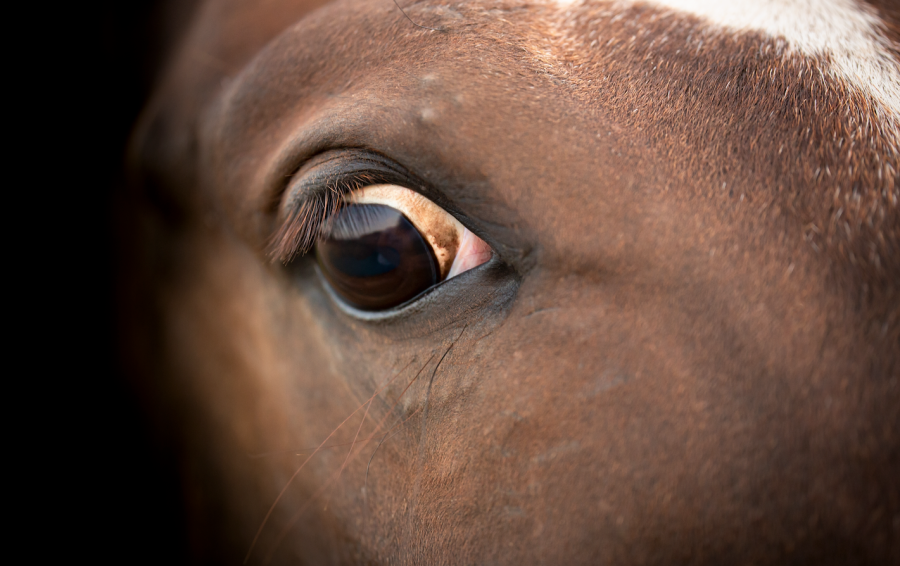Vets, industry bodies and equine welfare organisations are growing increasingly concerned about the impact that the absence of a digital equine identification and traceability scheme could have on public health.
Leading voices from the equine sector as well as the food industry are warning that there’s a real danger that horses treated with lethal veterinary drugs could enter the human food chain undetected as beef.
A statement sent to Your Horse said: “Despite the well-documented lessons of the 2013 horsemeat scandal, the UK continues to rely on a dangerously outdated paper-based passport system administered by over 70 third-party organisations — many of which are rendered unable to accurately update ownership, transfer or death records.”
It also described “”serious regulatory failures in the equine identification, traceability and euthanasia process”.
In March, Your Horse reported that the development of a digital equine identification and traceability scheme has been put on hold by the government due to financial constraints.
“There is absolutely nothing stopping a horse euthanised with barbiturates — rendering its meat a toxic hazard — from being passed off as a clean carcass for human consumption,” said Dr Jason Aldiss, executive director of the Association of Independent Meat Suppliers (AIMS).
“We are sitting on a ticking time bomb.”
Government scheme paused
When Your Horse contacted Defra, a spokesperson said: “Equine identification and traceability are necessary to support biosecurity, public health, equine welfare, and trade.
“We continue to work closely with industry stakeholders, the Food Standards Agency, the Central Equine Database supplier and devolved governments to resolve issues.”
Defra also said that in early 2024, the cost estimates to deliver the digital enhancements to the government’s Central Equine Database significantly increased.
As an interim measure — until work on a digitised equine ID scheme can progress — Defra continues to engage with equine industry stakeholders.
In its response, Defra also clarified that:
- The Food Standards Agency (FSA) is the national authority responsible for food safety and food hygiene across England, Wales and Northern Ireland.
- The FSA ensures that official controls and legislation for meat safety and traceability are met by deploying staff in every slaughterhouse.
- It also conducts risk-based, intelligence driven surveillance to monitor food safety and authenticity.
- A National Food Crime Unit to prevent, detect and investigate food crime was established following the discovery of horsemeat in the human food chain in 2013.
‘The technology exists’
But AIMS — which is the UK’s largest post farm gate trade body representing abattoirs, licensed meat and poultry processors, egg packers, pet food manufacturers, and catering butchers — stated that the Central Equine Database (CED) is not being updated by owners.
“[It] was meant to serve as a reliable national record and, by no fault of its own, remains ineffective due to a lack of mandatory, real-time data input by owners,” said our source.
“With no centralised enforcement, illegal substitution of horse meat remains a genuine threat, particularly as the red meat market tightens.”
Vets, industry bodies and equine welfare organisations are concerned that this lack of mandatory enforcement will facilitate the illegal substitution of horse meat.
They are calling for the immediate introduction of legislation mandating that horse owners update the CED directly and in real time.
They are also calling for the integration of equines into the UK’s Livestock Information Service, which has been allocated £500 million for digital traceability in the food chain.
“The technology exists. The funding exists. The legislative draft already exists, what’s missing is the political will,” said Dr Aldiss.
“We must act now to prevent another scandal and to uphold consumer trust, animal welfare, and public health.”
Illegal trade
Defra minister Baroness Hayman of Ullock told the National Equine Forum in London in March that while the government recognises the importance of equine identification and traceability, pressure on public finances means the project has been paused.
She said: “I do recognise that a key concern in the industry is the improvement of equine identification and traceability.”
Multiple high profile cases have highlighted the need for a centralised and fully digitalised ID and traceability system across the UK and EU.
In February last year, the ‘Dover 26’ — a transporter crammed full of horses being exported to Europe — were discovered. Many of the 26 equines on board did not have the necessary paperwork to travel.
Five months ago, Your Horse reported on the three-year-old ex-racehorse who suffered a fractured skull and severe wounds after being trampled by other horses in an overloaded lorry destined for slaughter.
World Horse Welfare researched the backgrounds of a group of eight horses who came into their care after a transporter carrying 20 horses was stopped at Dover in December 2024 and compiled a timeline of events to identify the gaps that illegal traders are exploiting.
In March, the charity called on the government to implement stronger legislation to disrupt horse smuggling as they believe a lack of accountability is being exploited by smugglers when the UK is used as a land bridge for moving horses between Ireland and the EU.
Image © Shutterstock
Related content
- How to tell if a horse is happy
- UK bans live export of horses for slaughter
- Petition set up with the aim of updating the Dangerous Dogs Act to better protect horses
- Public attitudes towards horse sport ‘on the right track’ but there is still more to do
- Learn to read your horse’s body language with this expert advice








